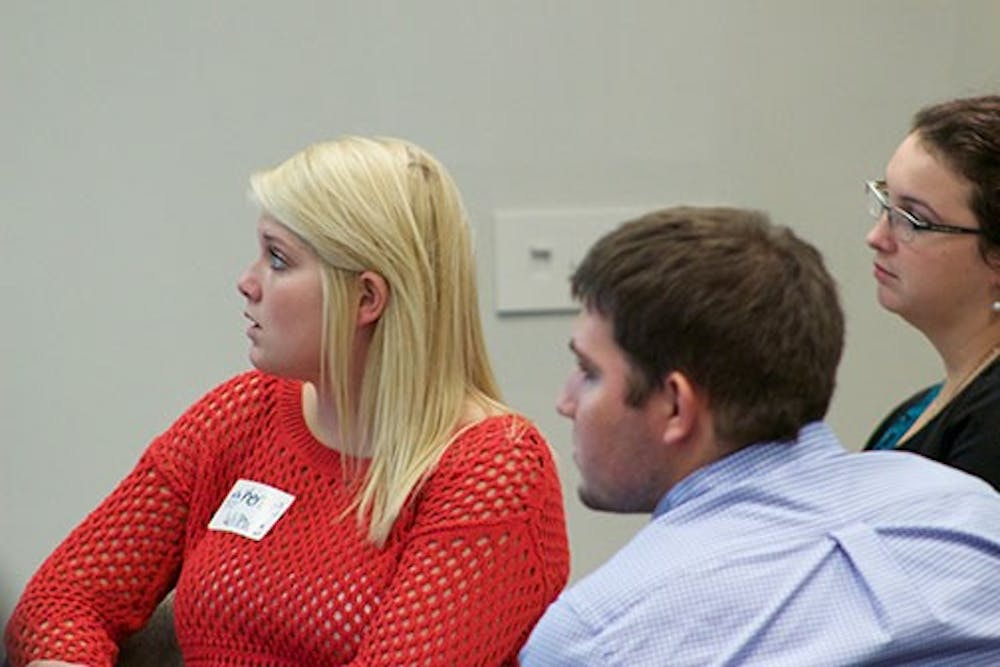There are some playground bullies who never grow up — rather, they grow up, but fail to outgrow their old habits.
The National Workplace Bullying Coalition (NWBC) held its second annual workplace bullying conference at the Shippensburg University Foundation on Oct. 23, bringing students, consultants and labor leaders together.
Conference chair and SU professor Jerry Carbo organized the event in the hope that researchers in the field and practitioners in the workplace could learn from each other and put a stop to workplace bullying.
“Bullying is a broader concept than workplace harassment,” Carbo said.
In 2013, more than 12,000 discrimination class action lawsuits were filed, according to one of the many conference presenters, Donna Moore, of STOP!t. Moore’s company created an app that allows people to alert their bosses of bullying in the workplace with quick, anonymous reporting. It is also used in elementary and high schools.
Conference attendees learned that one of the reasons people do not report misbehavior is because they fear the retaliation of their bully. Walking into the human resources office to report someone can draw attention. Workplace bullying can even lead to physical violence.
“We have more and more people resolving their conflicts by pulling out a weapon,” said Alan Morse, a consulting psychologist.
Morse provided his perspective on workplace bullying, highlighting the long-term effects it can have on a person and how leaders can put a stop to the problem.
According to Morse’s research, 53 percent of employers do nothing to stop bullying, while 71 percent of workplace bullies retaliate against the person who reported them.
Morse posed a question to the crowd: “You are all hoping to do what to the bullying culture?”
“Change it,” the group responded.
In addition to coaching employees to teach them acceptable behavior, employers must lead by example in order to foster an environment of psychological safety, Morse explained.
The stress caused by bullying ultimately costs businesses in revenue. Employees cannot perform to the best of their ability if they have to worry about a coworker.
Throughout the conference, several speakers highlighted the fact that bullying comes in different forms like sexual harassment, discrimination, the delegation of unwanted tasks, verbal or physical abuse, etc.
“It’s about controlling the target and finding the means to control the target,” Carbo said.
In his own experience, Carbo has been a victim of bullying, but has also been an advocate, attorney and mediator for others.
Business students at SU receive some education about workplace bullying in their human resources law class, Carbo said, but not much. Carbo invited some of his students to attend the conference.
“It was an eye opening experience that dispelled perceptions of bullying,” said Keith Russell, a business management and marketing major. “I learned how to respond to bullying and what resources I can utilize if it’s happening in the workplace.”


The Slate welcomes thoughtful discussion on all of our stories, but please keep comments civil and on-topic. Read our full guidelines here.